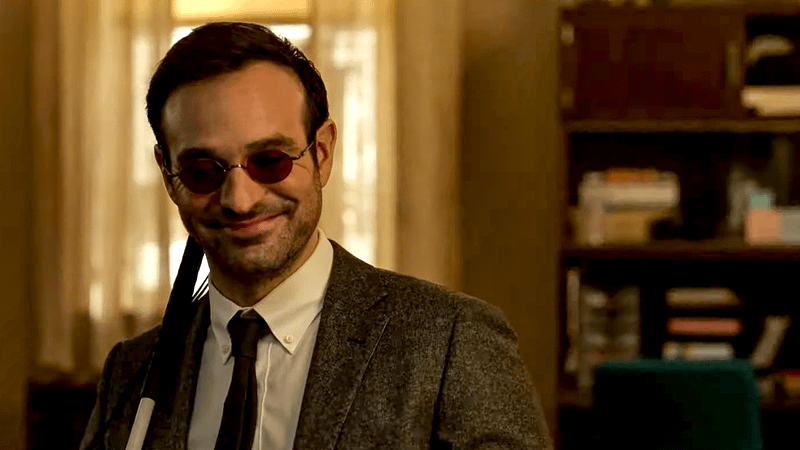
An earlier iteration of Daredevil: Born Again would have utilized the MCU's Multiverse, according to one of the show's stars. The superhero series is a revival and continuation of Daredevil, which began on Netflix in 2015 and ended after three seasons. The Disney+ show acts as a bridge between the Netflix universe of Marvel shows and the MCU, which was made possible after the rights to these characters returned to Disney in 2020.
Daredevil: Born Again was first announced in 2022, with previous series leads Charlie Cox (Daredevil/Matt Murdock) and Vincent D'Onofrio (Kingpin/Wilson Fisk) confirmed to return. Matt Corman and Chris Ord served as the original showrunners on the MCU series until Marvel Studios overhauled the project in late 2023, which involved scrapping several filmed episodes. Corman and Ord left the project, and Dario Scardapane was appointed the new showrunner, overseeing Daredevil: Born Again into its current form.
With Daredevil: Born Again confirmed as a direct continuation of Daredevil, both these shows have since become part of the MCU canon. But this wasn't always the plan. Cox revealed during Deadline's Crew Call podcast that the previous version of Daredevil: Born Again (before its retooling) used "variants" of the characters of Matt Murdock, Foggy Nelson, Karen Page, etc., to tell its story, which would have relegated the prior seasons of the Netflix series to the Marvel Multiverse rather than on the Sacred Timeline as they are now.

Cox explained that Marvel originally wanted Daredevil: Born Again to "be a reset" and that the initial story of the show had "another version of these characters existing in this world:"
"One of the things the original team wanted to do was they wanted to keep Vincent [D'Onofrio] and I. They wanted to keep us, [but] they didn’t want to alienate the audience who hadn’t watched the [Netflix] show. They wanted it to kind of be a reset.
So there was a conversation about it being almost like a variant. You know, in the 'Loki' show, we talk about these variants. It was almost like it was a variant–and we never said that–but it was almost like a variant. So it was another version of these characters existing in this world."
Cox went on to explain why they scrapped this idea. It became difficult for him to be believable as his character because the audience already knew what happened to his Daredevil during the Netflix show. This ended up being confusing as people "didn't think [he] was a variant, they thought [he] was being disingenuous:"
"That’s a valid choice, it’s a fun idea. The problem became that whenever I said something that was in contrast to what we’d shot in the past, people thought I was lying. They didn’t think I was a variant, they thought I was being disingenuous. It was a nice idea, it just didn’t pan out."
To avoid this, the creatives decided to make the previous Netflix seasons canon and introduce a time jump in Daredevil: Born Again instead. The first nine episodes in Season 1 saw Matt Murdock hang up his horns after Wilson Fisk, the new mayor of New York City, cracked down on vigilantes and forced Murdock to take his crimefighting to the court of law instead. Season 2 of Daredevil: Born Again will continue this story with another eight episodes, currently filming in New York City, with an intended 2026 release date.
Why Removing Daredevil From the MCU Multiverse Was for the Best

For several reasons, it might've made sense for Marvel to relegate Daredevil to the wider MCU Multiverse. The Netflix series was not made to fit into the MCU, and at the time, it was under a different company's oversight, meaning Marvel Studios may not have agreed with some of the creative decisions made.
The MCU is also already very expansive, with dozens of movies and TV shows in the main continuity. Adding another three seasons of Daredevil (plus the four other Netflix Marvel series) might have seemed like too much additional homework for viewers who were not already familiar, and moving all this backstory into the Multiverse might've been the most straightforward explanation to wipe the slate clean.
However, the characters in Marvel's Netflix series and the actors who played them were undeniably popular. Marvel Studios could have chosen to cast new actors for its Daredevil series, which would have been easier to sell as a reboot. However, bringing Cox and D'Onofrio back was ultimately the decision that made including the past Netflix seasons in the main continuity of the MCU essential.
Trying to explain to an audience already familiar with Daredevil that the characters (played by the same actors) are variants of the Multiverse and that none of their prior history is canon would have been a far more complex process than simply integrating these Netflix shows into the MCU and treating Daredevil: Born Again as its unofficial fourth season.
It also may end up being a very fruitful decision, as the MCU now has the opportunity to bring back other actors and characters from the Netflix Marvel era and capitalize on the years of storytelling in those shows. This is already in action, with the inclusion of Jessica Jones in Daredevil: Born Again Season 2 and The Punisher Marvel Special Presentation, which is in development.












